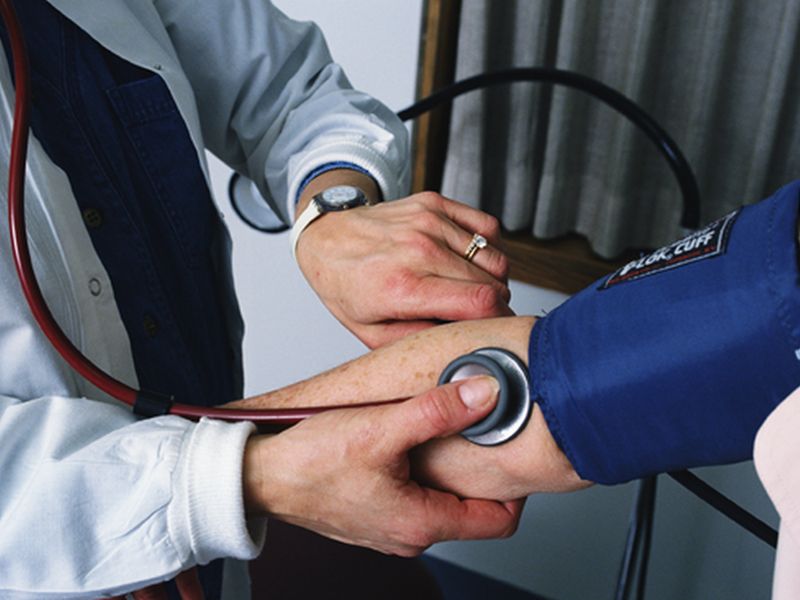Even Small Improvements in Cholesterol, Blood Pressure Help Prevent Heart Attack
By Serena GordonHealthDay Reporter

THURSDAY, Sept. 5, 2019 (HealthDay News) -- Small, lasting changes in cholesterol and blood pressure levels can dramatically reduce the risk of heart disease and strokes over a lifetime, new research suggests.
The large study found that a combination of a drop in LDL cholesterol (the bad type) of 14 mg/dL and a 5 mm Hg drop in systolic blood pressure (the top number in a blood pressure reading) cut the lifetime risk of heart disease and stroke in half.
And, the more those levels fell, the greater the reduction in heart disease and stroke risk.
"Small changes in blood pressure and cholesterol over decades can lead to huge benefits. Changes that are doable with a healthy diet and exercise can cut cardiovascular risk by 50%," said Dr. John Osborne, a spokesman for the American Heart Association and director of cardiology at State of the Heart Cardiology, in Dallas.
Osborne wasn't involved in the new study, but is familiar with the findings.
A number of past studies have shown that lowering blood pressure or cholesterol for five years or so can have an impact on cardiovascular disease. But it's been difficult to know how a lifetime of these changes could affect the risk of heart disease and stroke.
The new research included almost 440,000 people, average age 65, enrolled in a long-term study in the United Kingdom. Fifty-four percent were women.
The study participants were recruited between 2006 and 2010. The follow-up lasted through 2018. During that time, almost 25,000 people had a non-fatal heart attack, a stroke caused by a blood vessel blockage (ischemic) or a heart disease death.
The researchers looked for study participants who had genetic variants that led to them having lower LDL cholesterol and systolic blood pressure throughout the study. Using a statistical technique called Mendelian randomization, the investigators were able to estimate lifetime effects of lower cholesterol and systolic blood pressure compared to people without these gene variations.
The study found the combination of an LDL reduction of 39 mg/dL and a 10 mm Hg lower systolic blood pressure could decrease the lifetime risk of cardiovascular disease by 80%. The same combination also lowered the lifetime risk of death due to heart disease by more than two-thirds.
Osborne said that much of a reduction might be tough to achieve with just diet and exercise, but it's "doable" with medications.
"In clinical trials, we're often just looking at five or six years. Now, we can appreciate the effect of those changes over decades of life," he said.
Dr. Satjit Bhusri, a cardiologist at Lenox Hill Hospital in New York City, also reviewed the findings.
"We know that elevated bad cholesterol and elevated blood pressure are two independent, modifiable risk factors for heart disease. The combination of the two elevate this risk further," he explained.
But, Bhusri said, this study revealed that "even a modest decline had a major impact on the diagnosis of heart disease." He added that this study also shows what happens if someone adheres to a healthy lifestyle or medications to lower these risk factors over a lifetime.
"Adherence to lifestyle changes and to medications is a major predictor of heart disease," Bhusri said.
The study was presented Monday at the European Society of Cardiology meeting in Paris. It was simultaneously published online in the Journal of the American Medical Association.
Dr. Brian Ference, a cardiologist at the University of Cambridge in England, is the study's lead author.
More information
The American Heart Association has more about lifestyle changes you can make to protect your heart.

The news stories provided in Health News and our Health-E News Newsletter are a service of the nationally syndicated HealthDay® news and information company. Stories refer to national trends and breaking health news, and are not necessarily indicative of or always supported by our facility and providers. This information is provided for informational and educational purposes only, and is not intended to be a substitute for medical advice, diagnosis, or treatment.

